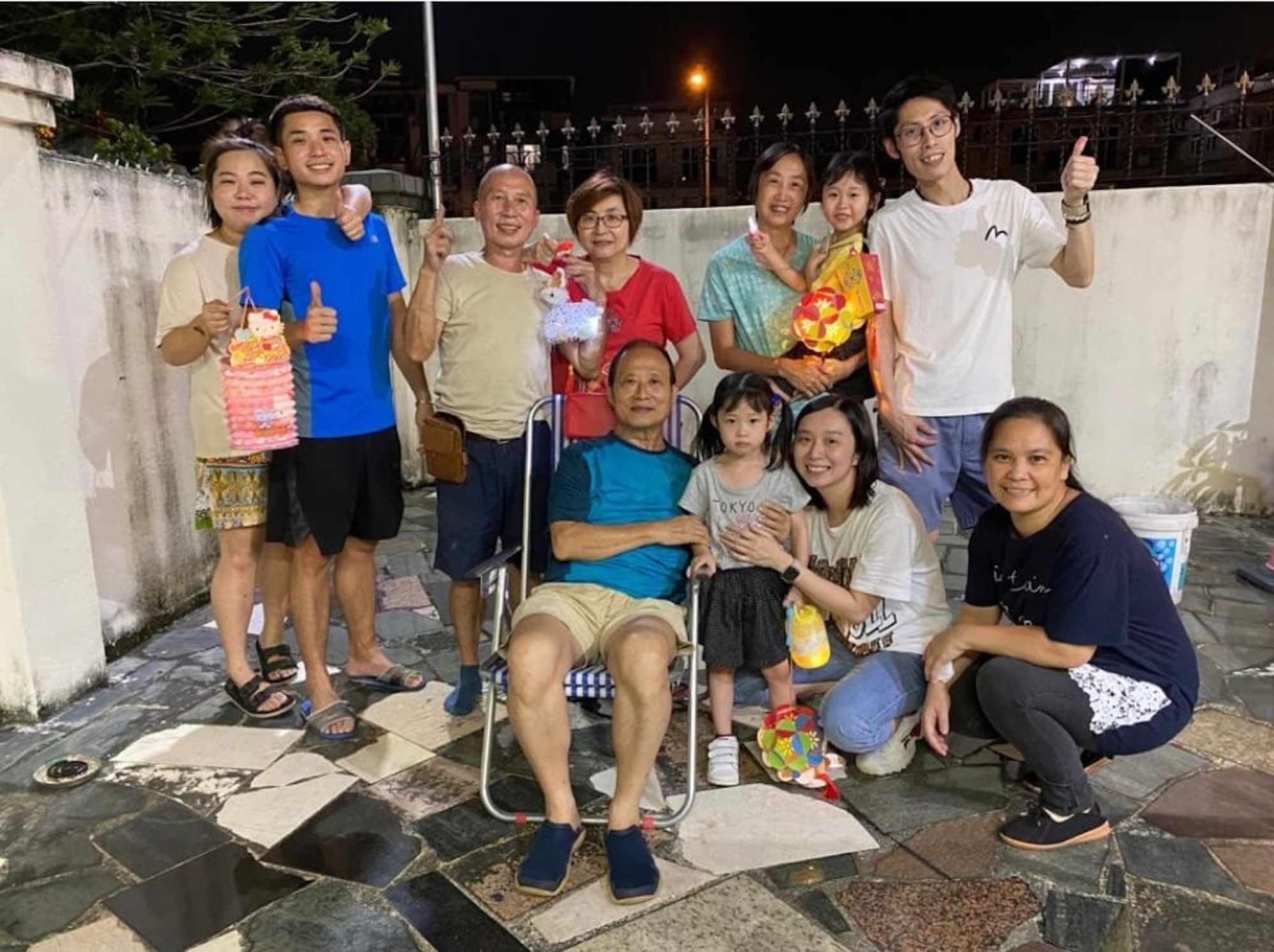
Facing late stage cancer, he found hope and positivity with the right emotional support – how to comfort and reassure someone with a terminal illness
- People with a terminal illness experience a range of emotions, from fear and anxiety to sadness, regret and guilt. People like Hong Kong retiree Lam Po-wing
- Spending time with them, helping them manage their financial affairs and fulfilling their wishes can help make their last days happier and more meaningful
In January 2019, retired teacher Lam Po-wing received frightening and devastating news: a diagnosis of Stage 3 colon cancer.
“I didn’t know what to do, think or say at the time. My doctor didn’t tell me how much time I had left to live; all he said was that my treatment would be long-term and that we’d have to monitor my health very closely.
“I didn’t know anyone with cancer and had no clue what treatment even entailed. I cried as my wife of 38 years, Hui Ching-ching, comforted me. We are a close, loving couple and I worried about what might happen to her and our daughters if I left them suddenly. Who would be around for them?”

Denial is often the first response to a terminal diagnosis, and Lam found it difficult to think about how the following weeks or months would unfold. Stressed and depressed, he turned to Maggie’s Cancer Caring Centre at Tuen Mun Hospital in the west of the city’s New Territories. There, specialists helped him face his diagnosis and understand and manage the difficult feelings that came with it.
“That’s when things started to change for me emotionally,” says Lam, who took part in workshops and joined support groups to learn how to go on living.
A centre to warm the hearts of cancer sufferers
“When my cancer returned 18 months after I finished chemotherapy, I felt defeated because I’d worked so hard to do all the right things and maintain a healthy lifestyle,” he says.
Maggie’s had stopped in-person meetings by then because of the pandemic, so the staff and new friends at the centre supported him as best they could over Zoom.
In our ageing societies, have we lost the art of dying?
“Typically, when someone is diagnosed with a terminal illness, they may feel numb at first,” says Hong Kong-based psychologist Dr Adrian Low. “They may then go through the various stages of grief.
“The first is denial, because they may find it hard to believe that something so serious and dire is happening to them. The denial may give way to anger and resentment, and believing that their situation is unfair. Then, they may feel the need to ‘bargain’, generally with a higher power that they believe in, to prolong their life.”

During the acceptance stage, the emotions start to stabilise and the individual may feel that they can live with their new reality, he adds. They may tell themselves, “I will die but I’m going to be OK.”
“It’s a period of adjustment and readjustment as their fear, anger, regret, frustration, sadness and so on, become more bearable. They may emerge from their ‘fog’ and start to engage with friends, and may even form new relationships as time goes on. Of course, this varies between individuals, but generally, there is acceptance.”

Professional counselling can help terminally ill patients review their experience with their illness, discuss their concerns about death and dying, cope with the circumstances, and find purpose in their life.
Individuals who receive such support are better able to identify their feelings, and find constructive ways to alleviate negative emotions. They may also be better able to communicate their needs to their loved ones and build a support network to help them prepare for the end.
How can you help a friend or family member who is terminally ill? Lend a listening ear, Low says, validate their feelings and reassure them of your support. He also suggests spending time together, doing things they enjoy and fulfilling their wishes as much as possible.
Proposed changes to law promise more end-of-life treatment choices
“Respect how they want to spend the time they have left. Don’t put your desires ahead of theirs. You can help them create a list of things they’d like to do or places they want to go. Knowing that people want to make them happy and comfortable may reduce their fear, anger and resentment, and help them feel more hopeful and positive.”
Practical ways to help them feel more at ease include reading or singing to them, reliving memories and experiences, telling them you love them, making physical contact, whether it’s holding their hand or gently massaging them, and just sitting with them and not talking.
“It’s common to not know what to do or say or how to cope during this difficult time, but learning what to expect can help you feel less frightened and confused and allow you to plan how to manage the emotional and physical challenges ahead,” Low adds.

Now that he’s settled his financial affairs and ensured that his wife will be well taken care of after he’s gone, Lam has some peace of mind. And with support from his family and the people at Maggie’s, he says he’s learned how to live for the moment and to cherish each day.
In August, Lam learned that his cancer had returned for the second time, but he’s doing his best to remain hopeful and positive. Having a supportive, compassionate and understanding wife and knowing that his former colleagues are praying for him are making all the difference.
Why Hongkongers need to talk more openly about death
“I just want to keep moving forward and what makes the journey easier is knowing that I am not alone.”

